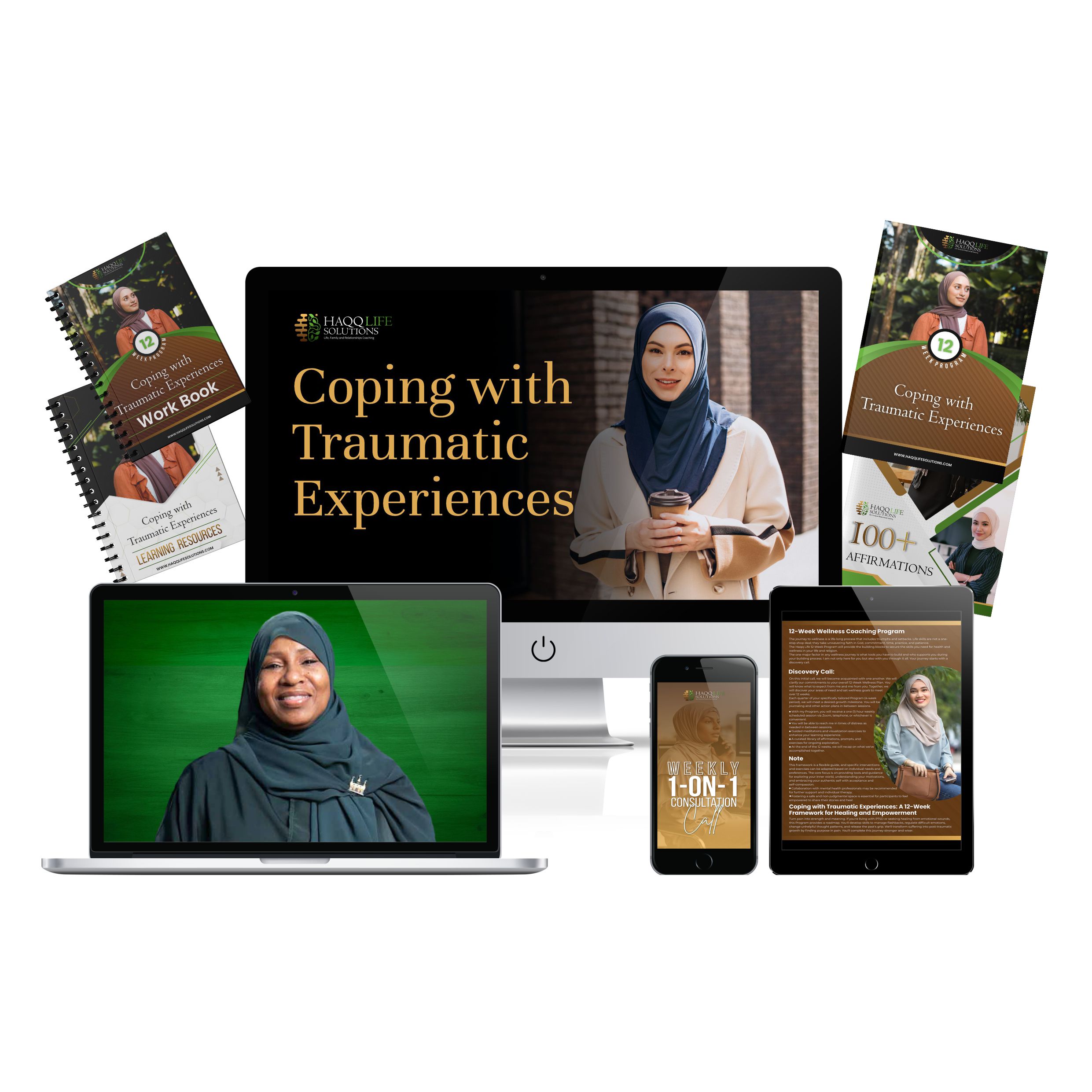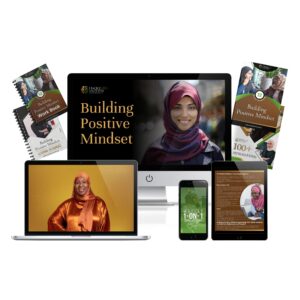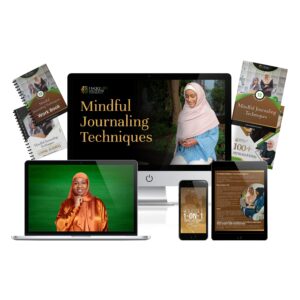Description
Coping with Traumatic Experiences: A 12-Week Framework for Healing and Empowerment
Turn pain into strength and meaning. If you’re living with PTSD or seeking healing from emotional wounds, this Program provides a roadmap. You’ll develop skills to manage flashbacks, regulate difficult emotions, change unhelpful thought patterns, and release the past’s grip. We’ll transform suffering into post-traumatic growth by finding purpose in pain. You’ll complete this journey stronger and wiser. See program info below.
Quarter 1: Understanding & Acknowledging Trauma (Weeks 1-4)
- Defining Trauma & Exploring Types: Understand the nature of trauma, its various forms, and how it affects the mind, body, and spirit.
- Validation & Self-Compassion: Create a safe space for sharing individual experiences, fostering self-compassion, and validating the impact of trauma.
- Identifying Triggers & Early Warning Signs: Learn to recognize personal triggers and early warning signs of emotional distress, developing preventative strategies.
- Building a Support System: Identify and cultivate trustworthy support networks, including therapists, support groups, or loved ones who can offer encouragement and understanding.
Quarter 2: Moving Through the Pain (Weeks 5-8)
- Emotional Awareness & Regulation: Develop tools and practices for identifying and managing difficult emotions, fostering emotional regulation and resilience.
- Narrative Therapy & Reframing: Explore personal narratives related to the trauma, reframing them from victimhood to empowerment and resilience.
- Mindfulness & Relaxation Techniques: Integrate mindfulness practices like meditation and breathing exercises to manage stress and anxiety, promoting inner peace and grounding.
- Creative Expression & Release: Encourage healthy outlets for processing emotions and experiences through journaling, art therapy, or other creative expressions.
Quarter 3: Reclaiming Control & Building Resilience (Weeks 9-12)
- Body Movement & Somatic Practices: Explore the connection between mind and body, utilizing gentle movement and somatic practices to release emotional blockages and re-embody with self-compassion.
- Setting Healthy Boundaries & Self-Care: Develop assertive communication skills and establish healthy boundaries in relationships to protect and prioritize your well-being.
- Post-Traumatic Growth & Finding Meaning: Explore the possibility of post-traumatic growth, identifying strengths and personal resources gained from the experience.
- Developing Long-Term Coping Strategies: Create a personalized toolbox of coping mechanisms and self-care practices for managing future challenges and maintaining emotional well-being.
Exit Session: Celebrate successes, acknowledge personal growth, and discuss strategies for ongoing self-care and building a fulfilling life beyond the Program. Emphasize the importance of individual healing journeys and empowerment in navigating the aftermath of trauma.







Reviews
There are no reviews yet.